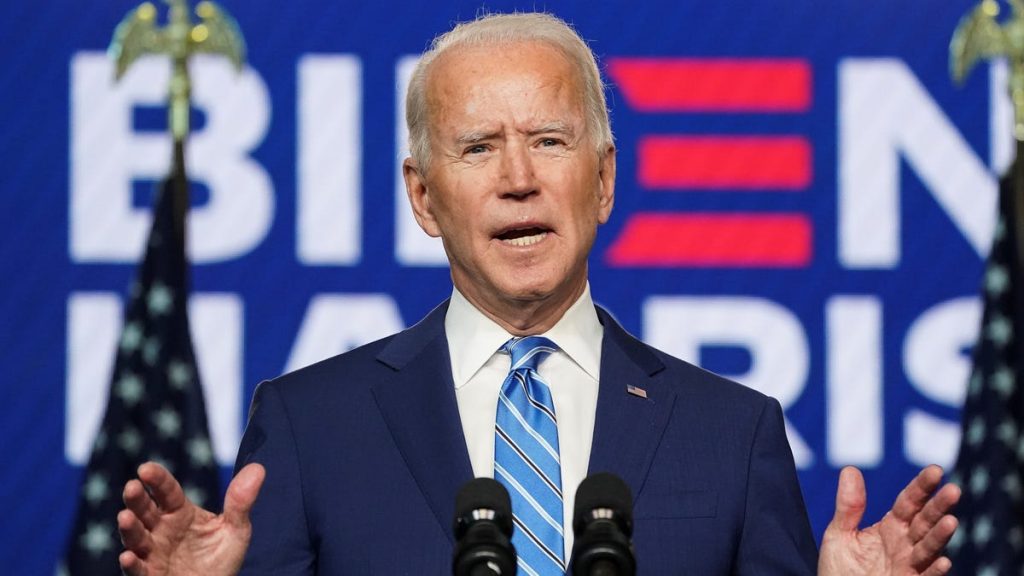Biden looks to reassert US influence in Africa with summit

President Biden is hosting 50 leaders from Africa in Washington this week for a high-profile summit seeking to bolster future relations with the continent and counter Chinese and Russian influence.
It is the first time since 2014 the White House will host a summit with African leaders as the Biden administration seeks greater collaboration on trade, investments, elections and climate change.
The U.S.-Africa Summit comes while some African nations refuse to take a stance against Russia, amid concerns over global food security during the war in Ukraine and as part of Bidens ongoing efforts to strengthen democracies abroad.
Experts believe Bidens greatest challenge will be proving to African leaders that the U.S. can be a reliable, long-term partner for a fast-growing continent that has significant sway in the global economy and diplomatic community.
They dont see us as a long-term partner. They dont see us as trusted. They see us as kind of unreliable. And this summit is the start of the effort to try to rewrite that narrative, said Cameron Hudson, a senior associate in the Africa Program at the Center for Strategic and International Studies.
Hudson noted Biden has not held many White House visits or meetings on the sidelines of the United Nations with African leaders compared to his predecessors. But the continent is home to key minerals for global supply chains, and its growing population means it will also provide an increasing percentage of the global workforce.
African nations make up roughly a quarter of the United Nations General Assembly, and many of those nations either abstained or broke from the U.S. earlier this year on a resolution condemning Russias invasion of Ukraine.
The African leaders reaction to the war in Ukraine played a large role in the decision for the Biden administration to hold the summit, experts said.
Theres a part of me that sort of feels that the American policy establishment is shaken by the African reaction to the Ukraine conflict. And this seems to be an overture. This seems to be born out of a realization that things arent what they used to be, said Ebenezer Obadare, the Douglas Dillon senior fellow for Africa studies at the Council on Foreign Relations.
And if the United States is going to have to hold on to its allies in the region, it is going to have to do some smooching.
The U.S. is working through a long-term strategy on diplomacy with Africa that has a lot to do with Russias focus on the continent, as well as Chinas, Obadare added.
I wont believe it for a minute if anybody says its got nothing to do with Russia, he said. I think the United States is thinking much more in the longer term. How did we drop the ball to such an extent that we allowed China and Russia to gain so much hold in the continent that were actually scrambling?
Youre looking beyond the immediate need to wrest African countries away from Russia to regaining the affections of those countries and consolidating American interest in Africa, he added.
The White House this week sought to allay concerns that the summit will be a one-off event or that Bidens focus on Africa will fall by the wayside once it is over.
Biden during the summit will announce the U.S. is committing $55 billion to Africa over the next three years.
He will also announce his support for the African Union to join the Group of 20 permanently and his support for the U.N. Security Council to include a permanent member from the African continent. Additionally, a commitment on travel to Africa in 2023 is expected.
The U.S. will name Ambassador Johnnie Carson, who was assistant secretary of State for the bureau of African affairs and has held ambassadorships to Kenya, Zimbabwe, and Uganda, to be the new special representative for U.S. Africa Leaders Summit implementation.
But the White House has insisted the summit is not about trying to sway an African nation into taking a side against Russia.
We’re not putting a gun to anyones head. We believe that the war in Ukraine is a matter of principle, national security adviser Jake Sullivan said on Monday. But we’re not imposing conditionality.
We’re not approaching this from the point of view of coercing other countries, he added.
Obadare, though, noted that the U.S. may want commitments from African countries while they are providing deliverables to Africa during this three-day summit.
I think that the long-term question will be if America stays the course African countries want certain commitments from the United States, Obadare said. The United States is not just going to say, Here is our moral support, heres our financial support,’ and not asking anything from African countries.
Also on the agenda at the summit are meetings on business relations with Africa and future elections in the region. Oregon governor commutes all of states death sentences The Hills Morning Report Lawmakers agree on framework for government funding
On Wednesday, Biden will host a meeting about trade and investment between the U.S. and Africa, which will include CEOs from more than 300 U.S. and African companies and will conclude with public remarks from Biden. Then, the president will hold a meeting on free and fair African elections and close the day with a dinner for leaders and spouses.
High-level discussions on the African Unions vision for the continent will take place on Thursday, followed by a working lunch hosted by Vice President Harris and a meeting on food security hosted by Biden.
The three-day summit kicks off on Tuesday with conversations about the role of civil society, trade investment, health, climate, peace and space.

